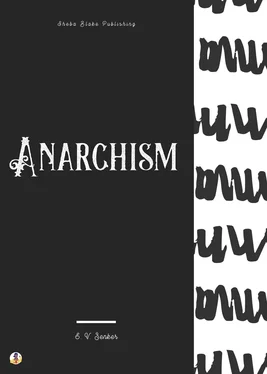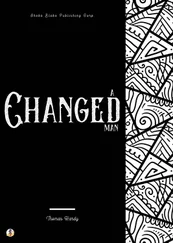Sheba Blake - Anarchism
Здесь есть возможность читать онлайн «Sheba Blake - Anarchism» — ознакомительный отрывок электронной книги совершенно бесплатно, а после прочтения отрывка купить полную версию. В некоторых случаях можно слушать аудио, скачать через торрент в формате fb2 и присутствует краткое содержание. Жанр: unrecognised, на английском языке. Описание произведения, (предисловие) а так же отзывы посетителей доступны на портале библиотеки ЛибКат.
- Название:Anarchism
- Автор:
- Жанр:
- Год:неизвестен
- ISBN:нет данных
- Рейтинг книги:4 / 5. Голосов: 1
-
Избранное:Добавить в избранное
- Отзывы:
-
Ваша оценка:
- 80
- 1
- 2
- 3
- 4
- 5
Anarchism: краткое содержание, описание и аннотация
Предлагаем к чтению аннотацию, описание, краткое содержание или предисловие (зависит от того, что написал сам автор книги «Anarchism»). Если вы не нашли необходимую информацию о книге — напишите в комментариях, мы постараемся отыскать её.
Anarchism — читать онлайн ознакомительный отрывок
Ниже представлен текст книги, разбитый по страницам. Система сохранения места последней прочитанной страницы, позволяет с удобством читать онлайн бесплатно книгу «Anarchism», без необходимости каждый раз заново искать на чём Вы остановились. Поставьте закладку, и сможете в любой момент перейти на страницу, на которой закончили чтение.
Интервал:
Закладка:
[5] Vorläufer des Neueren Socialismus , Pt. i., p. 230.
Once more the Anarchist views of the Amalrikite appear at the beginning of the sixteenth century among the Anabaptists in the sect of the “Free Brothers,” who considered themselves set free from all laws by Christ, had wives and property in common, and refused to pay either taxes or tithes, or to perform the duties of service or serfdom.[6] The “Free Brothers” had a following in the Zürich highlands, but they were of no more importance than the other sect, we have mentioned; utterly incomprehensible to those of their own time, they formed the extreme wings of the widespread Communist movement which, coming at the same time as the Reformation in the Church, separates the (so-called) middle ages from modern times like a boundary line. We observe in it nothing but the naïvely logical development of a belief that is common to most religions: the assumption of a happy age in the childhood of mankind (Golden Age, Paradise, and so on), when men followed merely the laws of reason (Morality, God, or Nature, or whatever else it is called), and needed no laws or punishments to tell them to do right and avoid wrong; when mankind, as every schoolboy knows from his Ovid,—
“Vindice nullo Sponte sua sine lege fidem rectumque colebat; Poena metusque aberant, nec verba minacia fixo Ære legebantur, nec supplex turba timebat Judicis ora sui, sed erant sine judice tuti.”
[6] “ Der Wideräufferen vosprung, fürgang, Secten v.s.w. … beschreiben durch Heinerrychen Bullingern…. ” Zurich, 1561. Fol. 32.
The transition from this primeval Anarchy to the present condition of society has been presented by religion, both Græco-Roman and Judaic-Christian, as the consequence of a deterioration of mankind (“the Fall”), and as a condition of punishment, which is to be followed, in a better world and after the work of life has been well performed, by another life as Eden-like as the first state of man, and eternal. But it must not be forgotten that Christianity was at first a proletarian movement, and that a great part of its adherents certainly did not join it merely with the hope of a return to the original state of Paradise in a future world. Perhaps (thought they) this Paradise might be attainable in this world. It can be seen that the Church had originally nothing to lose by at least not opposing this hope of a millennium[7]; and so we see not only heretics like Kerinthos, but also pillars of orthodoxy, like Papios of Hieropolis, Irenæus, Justin Martyr, and others, preaching the doctrine of the millennium. In later times, indeed, when the Church had long since ceased to be a mainly proletarian movement, and when Christianity had risen from the Catacombs to the palace and the throne, the hopes of the poor and oppressed for an approaching millennial reign lost their harmless character, and “Millennialism” became ipso facto heresy. But this heresy was, as may be understood, not so easy to eradicate; and when, in the closing centuries of the middle ages, the material position of large classes of people had again become, in spite of Christianity, most serious and comfortless, Millennialism awoke again actively in men’s minds, and formed the prelude, as well as the Socialist undercurrent, of the Reformation. Some Radical offshoots of this medieval Millennialism we have already noticed in the “Brothers and Sisters of the Free Spirit,” the Adamites, Chelcicians, and “Free Brothers.”
[7] Or, from the Greek, chiliad; and hence the word chiliasm , expressing the belief in a millennium.
* * *
The presuppositions of this flattering superstition are so deeply founded in the optimism of mankind, that it remained the same even when divested of its religious, or rather its confessional, garment; and could be no more eradicated by the Rationalistic tendency that arose after the Reformation than by the interdict of Rome or the brutal cruelties of ecclesiastical justice.
If we look more closely into the doctrine of the so-called contrat social , which was destined to form the programme of the French Revolution, we again recognise without much difficulty the fundamental ideas of the Millennialists, hardly altered at all. A Paradise without laws, existing before civilisation, which is considered as a curse, and another like unto it, when “this cursed civilisation” is abolished, is what a modern Anarchist would say. The names only are different, and are taken from the vocabulary of Rationalism, instead of from that of religious mythology. Instead of divine rights men spoke now of the everlasting and unalterable rights of man; instead of Paradise, of a happy state of nature, in which there is, however, an exact resemblance to Ovid’s golden age, the transition into the present form of society was represented to be due to a social contract or agreement, occasioned, however, by a certain moral degeneracy in mankind, only differing in name from the “Fall.” In this case, also, Anarchy is regarded as underlying society as the ideal state of nature; every form of society is only the consequence of the degeneration of mankind, a pis aller , or, at any rate, only a voluntary renunciation of the original, inalienable, and unalterable rights of man and nature, the chief of which is Freedom.
In the further development of this main idea the believers in the contrat social have been divided. While some, foremost among whom is Hobbes, declared the contract thus formed once and for all as permanent and unbreakable, and hence that the authority of the sovereign was irrevocable and without appeal, and thus arrived at Monarchism pure and simple; others, and these the great majority, regarded the contract merely as provisional, and the powers of the sovereign as therefore limited. In this case everyone is not only free to annul the contract at any time and place himself outside the limits of society,[8] but the contract is also regarded as broken if the sovereign—whether a person or a body corporate—oversteps his authority. Here the return to the primeval state of Anarchy not only shines, as it were, afar off as a future ideal, but appears as the permanently normal state of mankind, only occasionally disturbed by some transitory form of social life. This idea cannot be more clearly expressed than in the words which the poet Schiller—certainly not an advocate of bombs—puts into the mouth of Stauffacher in William Tell :
“When the oppressed . . . . . . makes appeal to Heaven And thence brings down his everlasting rights, Which there abide, inalienably his, And indestructible as are the stars, Nature’s primeval state returns again, Where man stands hostile to his fellow-man.”
How nearly the doctrine of the “social contract” corresponds to the idea of Anarchy is shown by the circumstance that one of the first (and what is more, one of the ecclesiastical) representatives of this doctrine, Hooker, declared, that “it was in the nature of things not absolutely impossible that men could live without any public form of government.” Elsewhere he says that for men it is foolish to let themselves be guided, by authority, like animals; it would be a kind of fettering of the judgment, though there were reasons to the contrary, not to pay heed to them, but, like sheep, to follow the leader of the flock, without knowing or caring whither. On the other hand, it is no part of our belief that the authority of man over men shall be recognised against or beyond reason. Assemblies of learned men, however great or honourable they may be, must be subject to reason. This refers, of course, only to spiritual and ecclesiastical authority; but Locke, who followed Hooker most closely, discovered only too clearly what the immediate consequences of such assumptions would be, and tried to avoid them by affirming that the power of the sovereign, being merely a power entrusted to him, could be taken away as soon as it became forfeited by misuse, but that the break-up of a government was not a break-up of society. In France, on the other hand, Étienne de la Boëtie had already written, when oppressed by the tyranny of Henry II., a Discours de la Servitude Volontaire, ou Contr’un (in 1546), containing a glowing defence of Freedom, which goes so far that the sense of the necessity of authority disappears entirely. The opinion of La Boëtie is that mankind does not need government; it is only necessary that it should really wish it, and it would find itself happy and free again, as if by magic.
Читать дальшеИнтервал:
Закладка:
Похожие книги на «Anarchism»
Представляем Вашему вниманию похожие книги на «Anarchism» списком для выбора. Мы отобрали схожую по названию и смыслу литературу в надежде предоставить читателям больше вариантов отыскать новые, интересные, ещё непрочитанные произведения.
Обсуждение, отзывы о книге «Anarchism» и просто собственные мнения читателей. Оставьте ваши комментарии, напишите, что Вы думаете о произведении, его смысле или главных героях. Укажите что конкретно понравилось, а что нет, и почему Вы так считаете.












